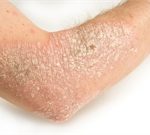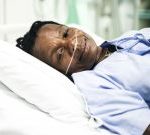
After a short-lived tax on sugar-sweetened and artificially sweetened beverages was repealed, consumption of sugary drinks in an Illinois County escalated again, according to a new study. The tax was pitched to reduce Cook County budget deficits. It lasted four months — from Aug. 2 to Dec. 1, 2017, the researchers said. “We know that the tax worked to bring down demand for sweetened beverages significantly while it was in place,” said lead author Lisa Powell, director of health policy and administration at the University of Illinois Chicago, School of Public Health. “The repeal of the Cook County Sweetened Beverage Tax was a missed public health opportunity,” Powell said. “If it had stayed in place, we could have seen a lasting reduction in consumption of sweetened beverages, which are linked to obesity, type 2 diabetes and cardiovascular disease, which, in turn, have recently been found to be associated with increased risk of severe illness from COVID-19.” For the study, the researchers compared the price and volume of sweetened beverages sold in the county while the tax was in place, for the two years prior to the tax and for the eight months after the tax was repealed, with sales in St. Louis, Mo., which did not have a similar tax. The price of the beverages increased by 1.13 cents per fluid ounce in the county… read on > read on >


















